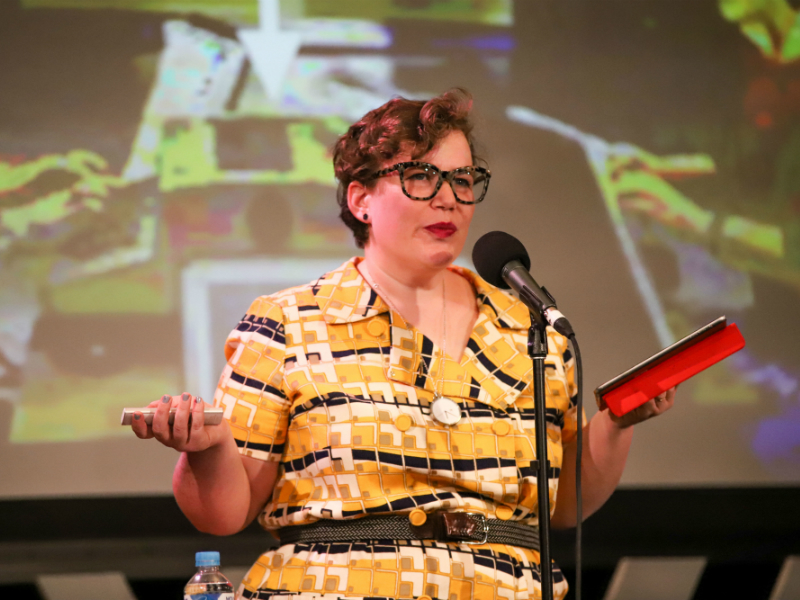Helen Zaltzman gets why some people might not like podcasts. But what she doesn’t get is when they write them off entirely. She’s heard people say that they tried listening to a podcast once, but didn’t like it, so that must mean they won’t like any podcasts at all.
“Nobody says, ‘I tried one TV show and I didn’t like it, so I’m never going to watch TV again,’ ” she says.
Despite the medium’s relative obscurity – fewer than half of all Americans have ever listened to a podcast, according to Edison Research – the genre’s popularity is climbing. As of June, there were more than 550,000 podcasts on iTunes. The medium has grown big enough for Hot Docs to launch an annual podcast festival in Toronto, at which Zaltzman will be performing on Nov. 4.
She’ll be onstage for a 75-minute live production of The Allusionist, her three-year-old linguistics podcast that delves into the quirks and stories behind the English language. The show often becomes a vehicle for her personal philosophy toward language: a push against the monolithic idea of an immutable English, and toward a more compassionate take on how we use words.
“Delving into how language works and why we use it the way we do is ultimately about being an empathetic human being,” she explains.
“Ultimately, it is about communicating. The particulars of how you do that are less important than if you manage to understand what they mean.”
READ: CONTROVERSIAL SHAKESPEARE ADAPTATION ANGERS PARENTS
Zaltzman began podcasting 12 years ago, when her friend, Olly Mann, approached her with the idea of starting what would become Answer Me This!, one of the most famous podcasts during the medium’s rise in the early part of this decade.
“I didn’t have a reason to say no, so I said yes,” she recalls. “Then we had to figure out how it all worked.”
They recorded it in Zaltzman’s living room with no real budget or professional equipment. In the show, they answered listeners’ questions, but without social media, soliciting emails was even harder than it would be today. Nonetheless, a devoted community quickly formed around the show.
“It would be very difficult to do now what we did,” she says, partly because there are so many podcasts and a relatively small audience pool. “Even at the time, it felt like a crowded market.” Now, that market is even more saturated.
“I don’t think there are too many podcasts, but I think not everything needs to be a podcast,” she says. Some shows, particularly ones that don’t take advantage of the intimacy and personality of audio, would be better as written articles or columns.
In 2013, after she’d won numerous awards in the radio and podcast world, she was approached by Roman Mars, a major figure at the podcast network Radiotopia and the host of 99% Invisible, a podcast about the hidden stories behind famous designs. He asked if she had any ideas she’d been sitting on that Radiotopia could recruit her for.
Her pitch? “His show, 99% Invisible, but for words,” she says. She’s always been interested in language, and studied English and Medieval English at university.
That show, The Allusionist, has since ascended to become the most popular language podcast around. Most episodes hover around 20 minutes, making it a pleasantly approachable alternative to denser, longer language podcasts like Slate’s Lexicon Valley or A Way With Words.
In Toronto, Zaltzman will perform a special live show she’s been touring throughout North America. Her husband, musician Martin Austwick, will join her, making it much more of a performance than simply a live version of her podcast.
“I came from a live performance background before podcasting,” she says. “It’s a very different audience – I like the fact that it’s just happening there and then, and it’s different every time.”
Helen Zaltzman will perform as part of the Hot Docs Podcast Festival at 12:30 p.m. on Nov. 4. For tickets, go to hotdocscinema.ca/c/podcast.
